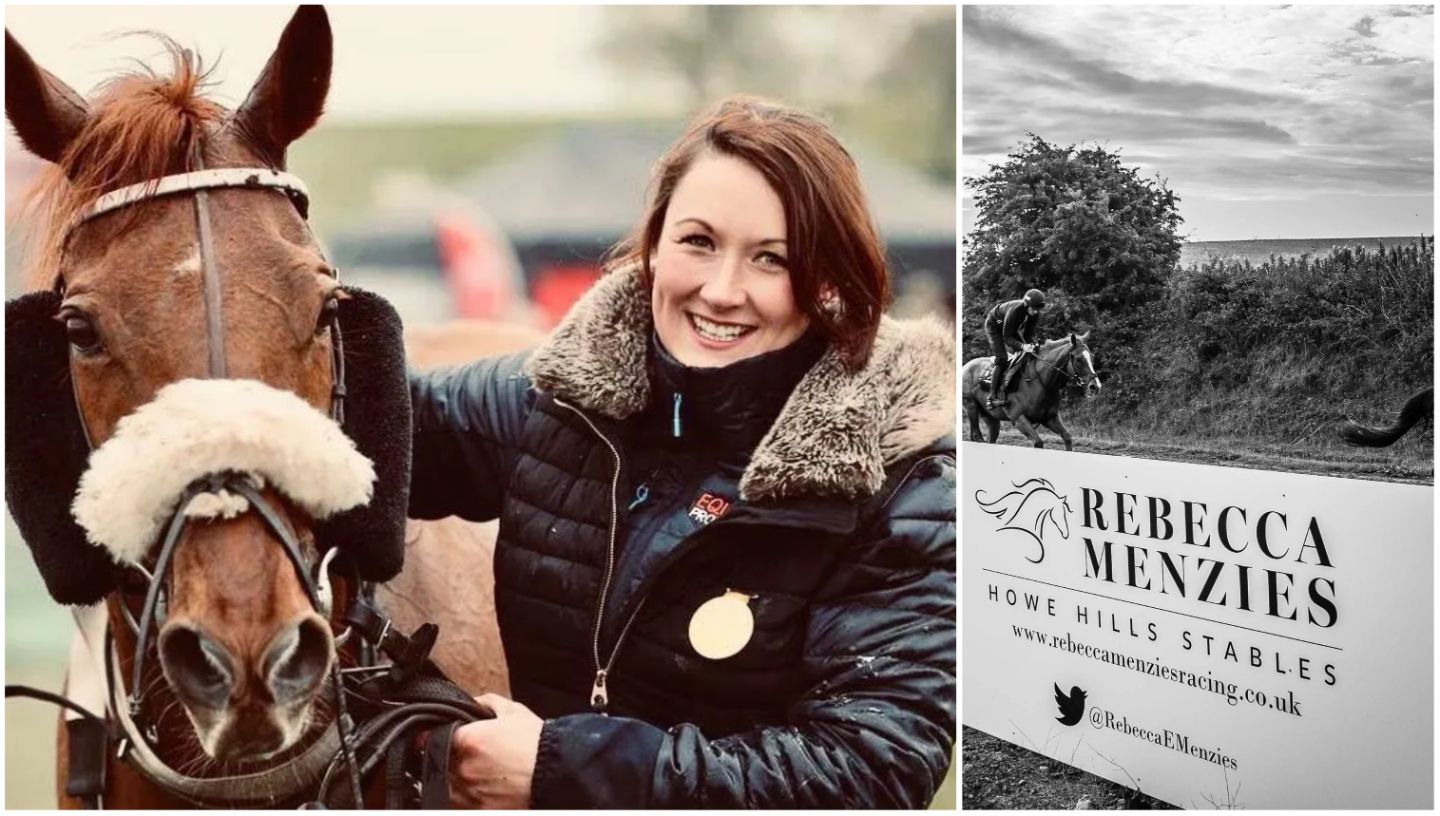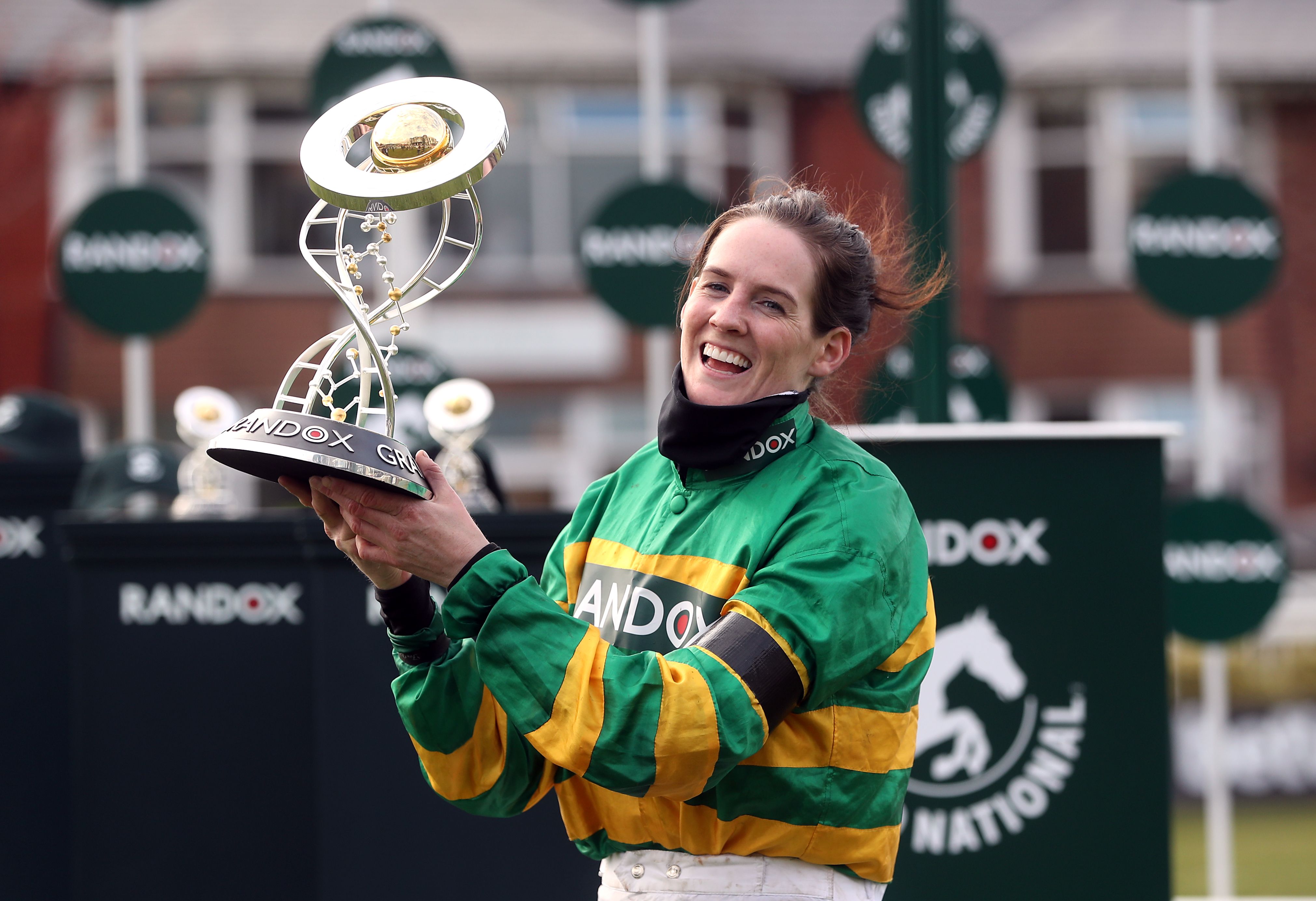When racehorse trainer Rebecca Menzies was 18-year-old, she found herself at a crossroads.She had spent a large part of her childhood looking after and riding out racehorses, even though her parents were allergic to the animal.Once her A-Levels were over, Menzies had to decide whether she should follow her passion or choose a more conventional career path.“I took a gap year and went to work with Ferdy Murphy, and then never ended up going back,†she revealed to GiveMeSport Women.“I didn't end up going to university or anything. I just went straight into work – working in the yard, working in the office, doing a lot of travelling for Ferdy.â€Under Ferdy, a Cheltenham Festival winning trainer, Menzies got her HGV licence and began transporting horses all over the country, as well as to France and Ireland.“I got quite a lot of experience very young, which is probably what gave me the confidence that I could go and do it myself,†she explained.
Menzies did indeed strike out on her own after Murphy’s retirement in 2013. At just 24-years-old, she became the youngest racehorse trainer in Britain.
“I was very, very young to be doing it. But I ticked all the criteria and ticked the boxes. I did my NVQ Level 3 and and got very good marks in that, and then went over and and did my trainers modules.
“I always took everything very, very seriously, with that end goal in mind. I rented a yard, I signed a two year lease on a yard before I had the licence granted. There were risks, calculated risks, taken along the way which enabled it all to happen.
“There were a lot of people that reached out and helped, people that I wouldn't necessarily expect to have helped.
“It was a very small team thing at the beginning. I had to do a lot myself. I did everything I possibly could to make sure it worked because it was make or break. I had the attitude that I had nothing to lose, and at that point I didn't, so I just went for it.â€
Menzies now has around 80 horses at her yard, and saddled her 200th career winner in November. It’s fair to say all of the risks taken over the past 10 years have paid off.
“When I had six horses, I thought the prospect of 20 was very scary,†Menzies said. “When we got to around 20, I thought the prospect of 40 was incredibly scary. But I suppose as your infrastructure grows, it makes it easier to have those types of numbers.
“We rode 80 odd horses out this morning. It actually now, weirdly, feels easier than when we had 20. Now I’ve got this team around me, it's enabling me to take a step back and look at the bigger picture.â€
Menzies is not the only woman forging her own path in horse racing. Jockeys such as Hollie Doyle and Rachael Blackmore have been making history in recent years, with the latter becoming the first female winner of the Grand National.
“They don't want to be classed as girls, as women,†Menzies said. “They just want to be classed as a jockey and I think that's really important. I think as long as they’re committed, they should 100 percent be treated as equal.
“I do think, even in my short space of time during this job, the attitude towards girls has changed massively. As more girls get into it, there are going to be more stars coming through.
“The women's changing rooms at the races are still a cupboard in the corner. For historical reasons the race courses aren't equipped to cater for female jockeys.
“Soon enough, those cupboards are going to start overflowing with talented people that are just going to have that leg up from somebody in the first instance, which I think is where things have been going wrong.â€
For those interested in seeing the work Menzies does first-hand, her yard is set to open to the public during National Racehorse Week. With stalls from local businesses and a syndicate area, visitors will also be able to visit the equine spa and watch the horses ride out.
"We did it last year," Menzies said. "We opened the gates and had about 350 people through on the day. It was absolutely brilliant.
"It was just so nice to see people that would never have normally got to go to a yard, come in and get very close up and personal with the horses.
"This year we've upped our numbers to 600, and I was pleased to see that over 100 of the visitors out of that 600 are going to be kids. And I think that's really important to get them hooked into the sport."
Rebecca was speaking on behalf of National Racehorse Week, which runs until 18th September and is mostly free to attend - please visit nationalracehorseweek.uk to find your nearest event.
Following news of The Queen’s death, Rebecca’s own National Racehorse Week event has been postponed – a new date will be confirmed in due course.





















